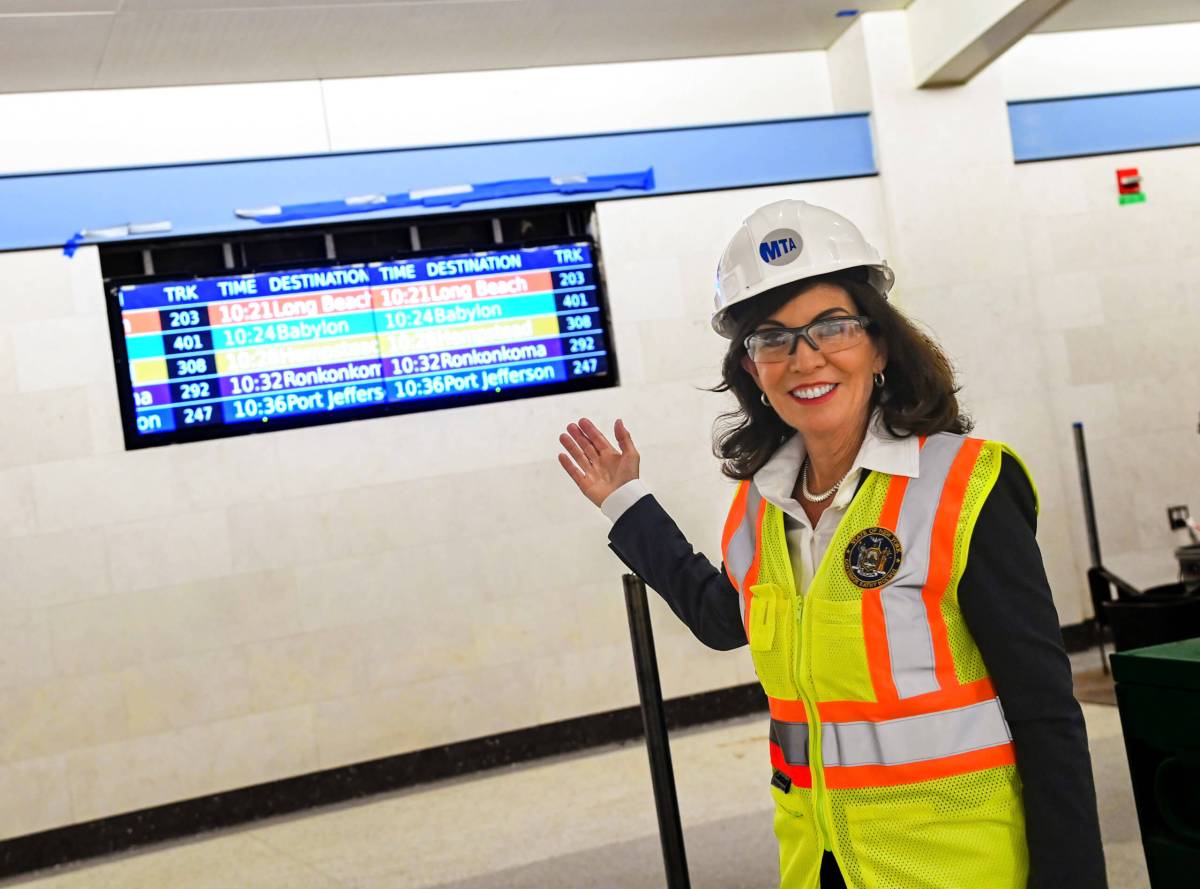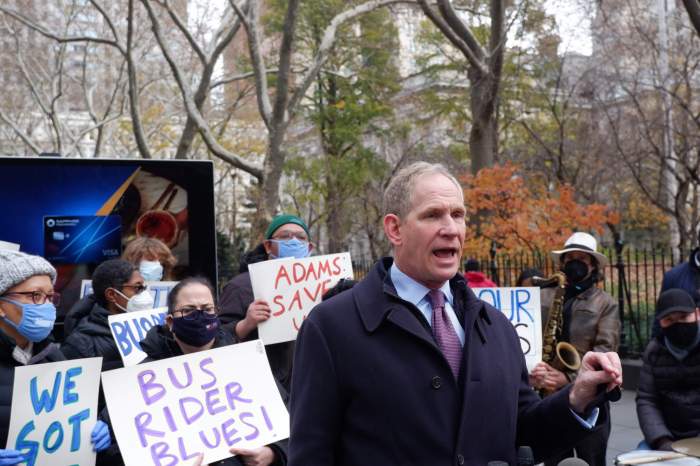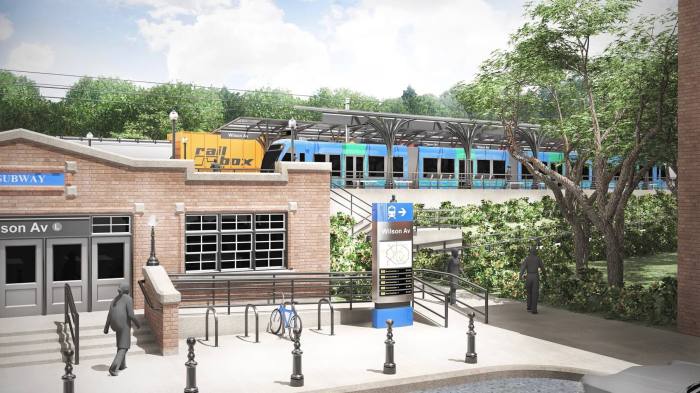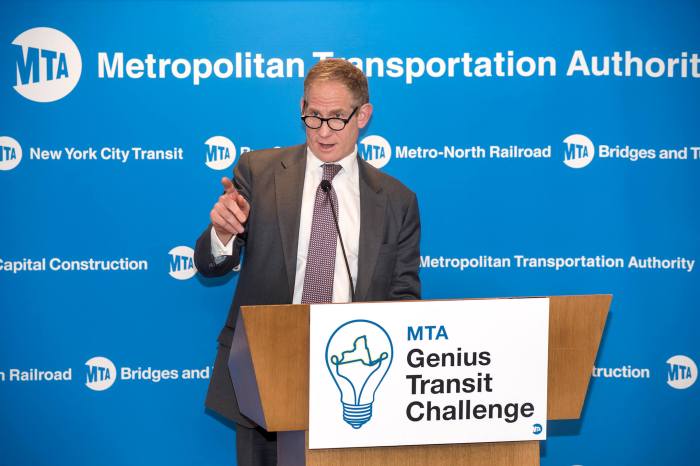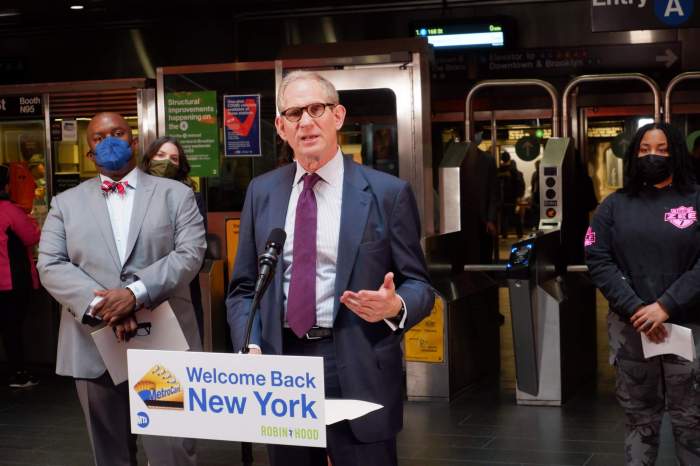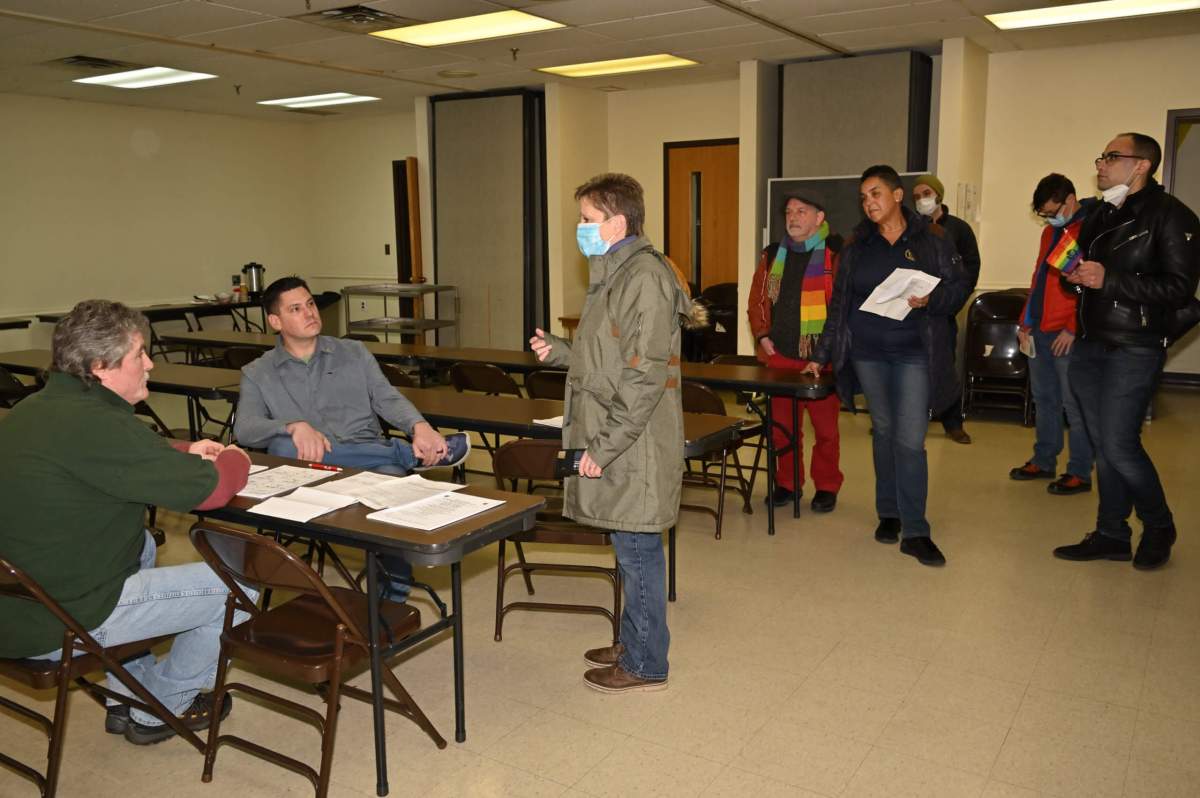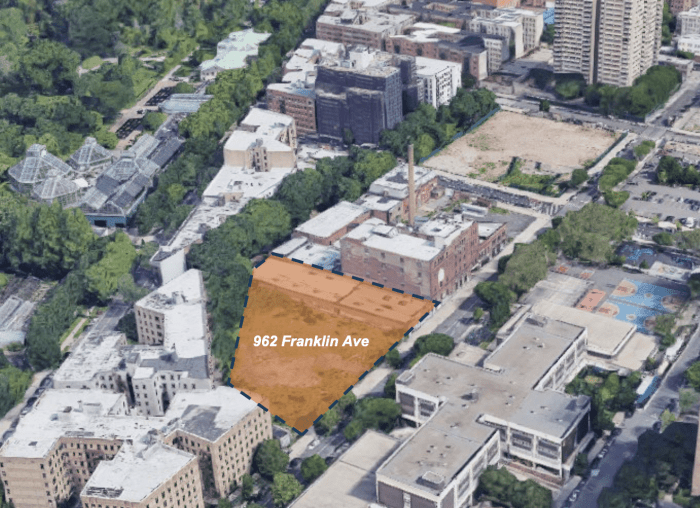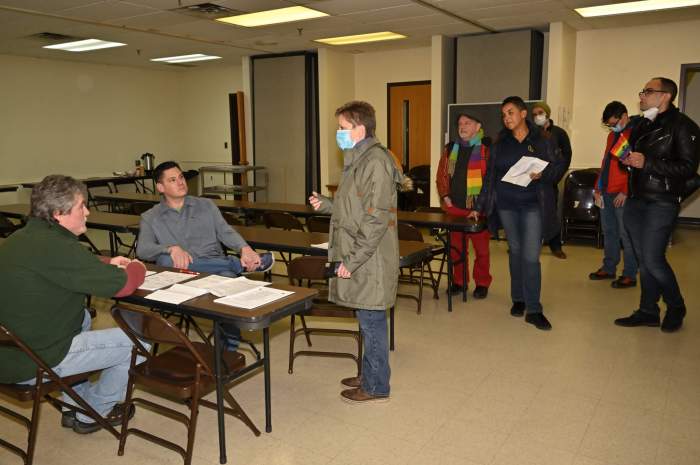The MTA’s decades-old East Side Access mega-project to bring the Long Island Rail Road to Grand Central Terminal will increase service on the commuter railroad by 40% once the new station far below the Midtown transit hub opens for passenger service in December.
Governor Kathy Hochul on Tuesday recommitted to finishing the more-than-two-decade-old transit infrastructure plan known as East Side Access before the year’s end and gave it a brand new name: Grand Central Madison.
“Let’s freshen up the whole experience, let people have a different name that actually means something to them,” Hochul told reporters on May 31. “When you’re talking about a place as iconic as Grand Central, you can’t change that.”
The governor spoke during a press conference with transit officials inside the new terminal.
The 700,000-square-foot station and concourse will have eight new tracks, allowing the MTA to move some LIRR trips from Penn Station over to Grand Central, which is home to MTA’s other commuter rail, the Metro-North Railroad.
The new station will shave about 40 minutes off commutes roundtrip between Long Island and Manhattan’s East Side, according to the governor.
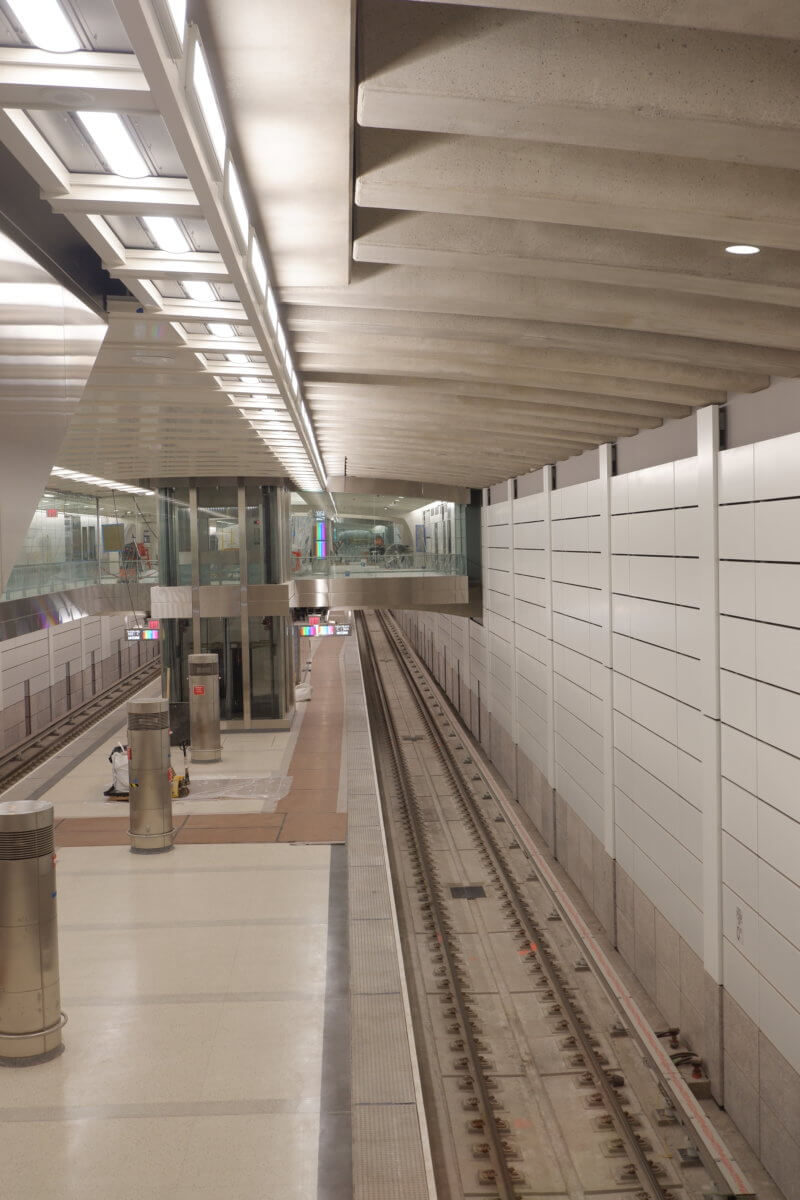
Hochul rode the first test train with non-transit workers aboard last Halloween from Jamaica, Queens, to the Manhattan platforms, which took about 27 minutes at the time.
The station will be the largest new stop on the LIRR in 112 years since the beloved old Penn Station, designed by architects McKim, Mead, and White, opened in 1910, along with its tunnels connecting across the East River to the suburbs.
Once Grand Central Madison opens, MTA will increase daily LIRR service during the morning rush from 113 trains to 158, while afternoon and evenings will go up from 98 to 158 trains.
Brooklyn service will increase by 28%, according to the transit agency.
The changes will cut some LIRR service to Penn Station, with 10 fewer trains going to that transit hub, but MTA Chairperson and CEO Janno Lieber said the impact to riders there will be “very moderate,” as 65 new trains will head toward Grand Central.
“The impact to all those people who have more convenient, or are headed towards east Midtown — which is the largest concentration of jobs in New York City — huge huge benefit,” Lieber said.
“And the people who are going into Penn are probably going to see a slightly less crowded situation because so many folks will move over to the East Side,” the transit chief added. “I think it is a net benefit, not just to everybody, but to Penn riders as well.”
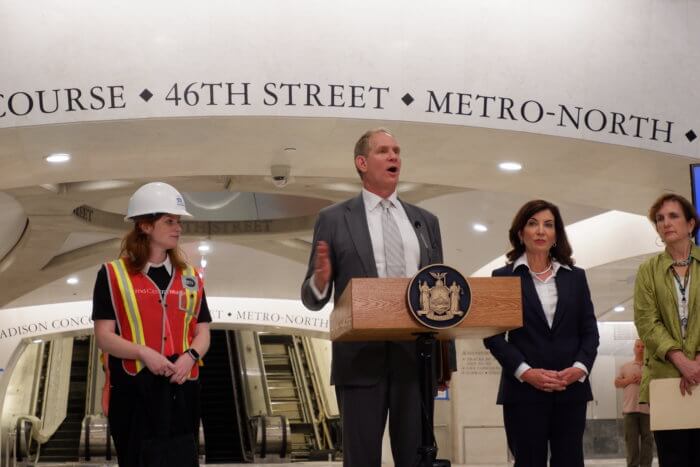
The agency will release the proposed new timetables later this week, and MTA will hold four evening virtual public meetings to get feedback from riders on the slated schedule adjustments, starting on June 23.
Rerouting trains to Grand Central will also give the MTA more room to get Hochul’s proposal rolling to revamp Penn Station, Lieber said.
“When roughly half of the Long Island Rail Road customers move over to the more convenient terminal at Grand Central Madison … it means we will have the room and the space to make the improvements to Penn Station that the governor has envisioned and set us on a course for,” Lieber said.



